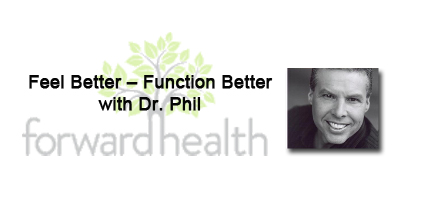What Are the Benefits of Sunlight?
For the first time in human history, we are not receiving the abundance of natural sunlight we used to when we worked and played outside. The modern lifestyle of work, school and recreation is dominated by indoor activities that often revolve around our computer screens. We’re used to hearing about how too much of the sun’s warm rays can be harmful to your skin. But did you know the right balance can have lots of mood-lifting benefits?
Sunlight and darkness trigger the release of hormones in your brain. Exposure to sunlight is thought to increase the brain’s release of a hormone called serotonin. Serotonin is associated with boosting mood and helping a person feel calm and focused. Without enough sun exposure, your serotonin levels can dip. Low levels of serotonin are associated with a higher risk of major depression with seasonal pattern (formerly known as seasonal affective disorder or SAD). This is a form of depression can be triggered by the changing seasons.
Our current lifestyle does not allow us enough sun exposure to stay healthy. Even when we do get outside, we now cover ourselves with protective clothing or sunscreen, to prevent sunburn, skin cancer, and premature skin aging. There are health benefits of sunlight. Vitamin D is produced when your skin is exposed to sunshine, or rather, the ultraviolet B (UV-B) radiation that the sun emits. The amount of vitamin D that your skin makes depends on such factors as:
- The season: This factor depends a bit on where you live.
- The time of day: The sun’s rays are most powerful between 10 a.m. and 3 p.m.
- Where you live: Cities near the equator have higher ultraviolet (UV) light levels. It is the UV-B light in sunlight that causes your skin to make vitamin D.
A mood boost isn’t the only reason to get increased amounts of sunlight. The great outdoors helps to relieve stress, keep you active, and improve focus. Getting outside can also help you get your daily dose of vitamins, specifically vitamin D, and help prevent a vitamin D deficiency.
What is vitamin D deficiency?
Vitamin D deficiency means that you do not have enough vitamin D in your body. Vitamin D is unique because your skin actually produces it by using sunlight. Vitamin D is one of many vitamins our bodies need to stay healthy. This vitamin has many functions, including keeping your bones strong. Having healthy bones protects you from various conditions such as weak bones can lead to osteoporosis, or the loss of bone density can lead to fractures.
Here are the primary signs and symptoms of vitamin D deficiency:
1. Fatigue
There are many causes of feeling tired, and vitamin D deficiency may be one of them. Low vitamin D levels are often overlooked as a potential cause; however, studies have found a strong connection between low vitamin D and self-reported feelings of fatigue.
2. Poor Immune Functioning
The immune system needs vitamin D to help fend off bacteria and viruses that can lead to illness.
3. Bone Pain
Vitamin D is best known for its ability to help maintain bone health. As a result, bone pain may be a sign of inadequate vitamin D levels. Studies have found that people with muscle pain, and chronic pain tended to have lower levels of vitamin D compared with people without these conditions.
4. Muscle Weakness
Reasons for muscle pain can often be hard to pinpoint. Since the vitamin D receptor is present in nerve cells called nociceptors, which sense pain, researchers believe vitamin D may be involved in the body’s pain signaling pathways, which could play a role in muscle as well as other chronic pain.
5. Decreased Mood
Feeling down and blue can also be a sign of vitamin D deficiency, which typically occurs during the colder months.
6. Slow Healing
Slow healing of wounds after surgery or injury may be a sign that your vitamin D levels are low. It’s been suggested that vitamin D controls inflammation and fighting infection is important for proper healing.
You can get vitamin D in a variety of ways. These can include:
- Being exposed to the sun. About 15-20 minutes three days per week is usually sufficient.
- Through the foods you eat.
- Through nutritional supplements.
If, however, you choose to get your vitamin D via supplementation, it’s a good idea to get your blood tested at least yearly to ensure you’re maintaining optimal amounts.
The sun is essential to our health, strength, peace of mind and even our survival. Our bodies evolved to utilize the sun’s power to create hormones that acts as natural pain killers, anti-inflammatory agents, appetite regulators and other agents that keep almost every aspect of our bodies functioning correctly.
Contact the office if you have questions, we’re here to help!
519-826-7973



